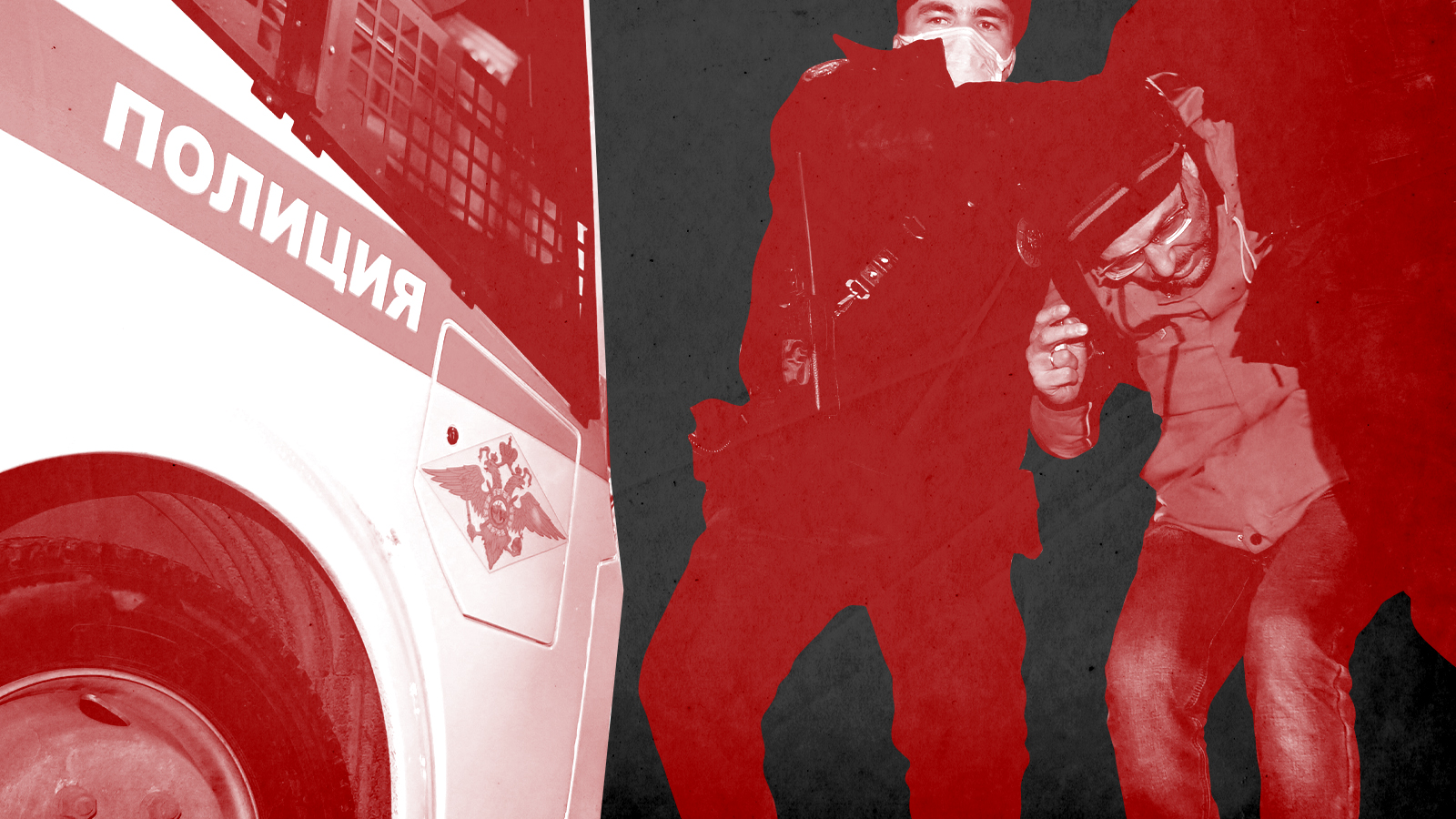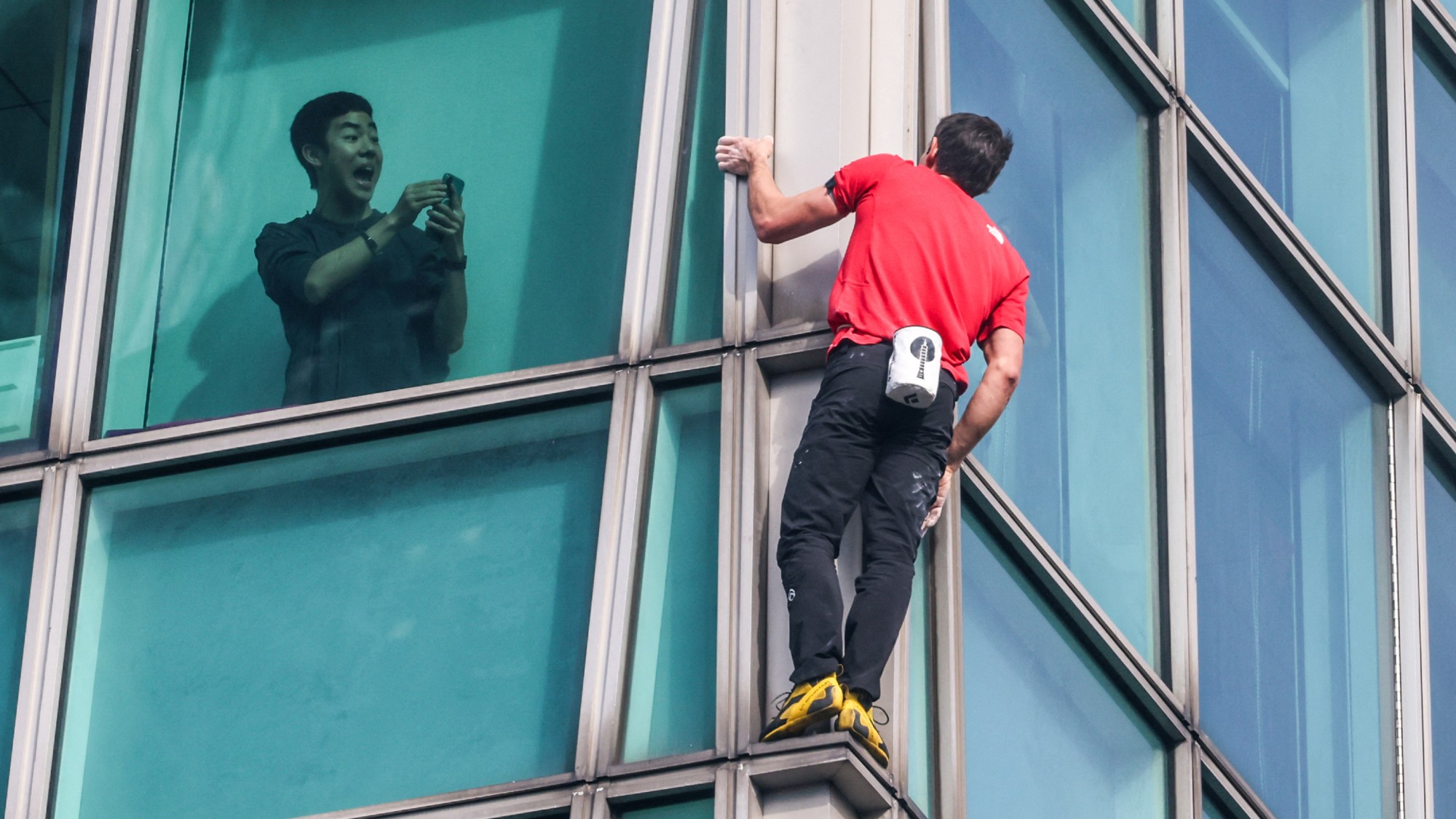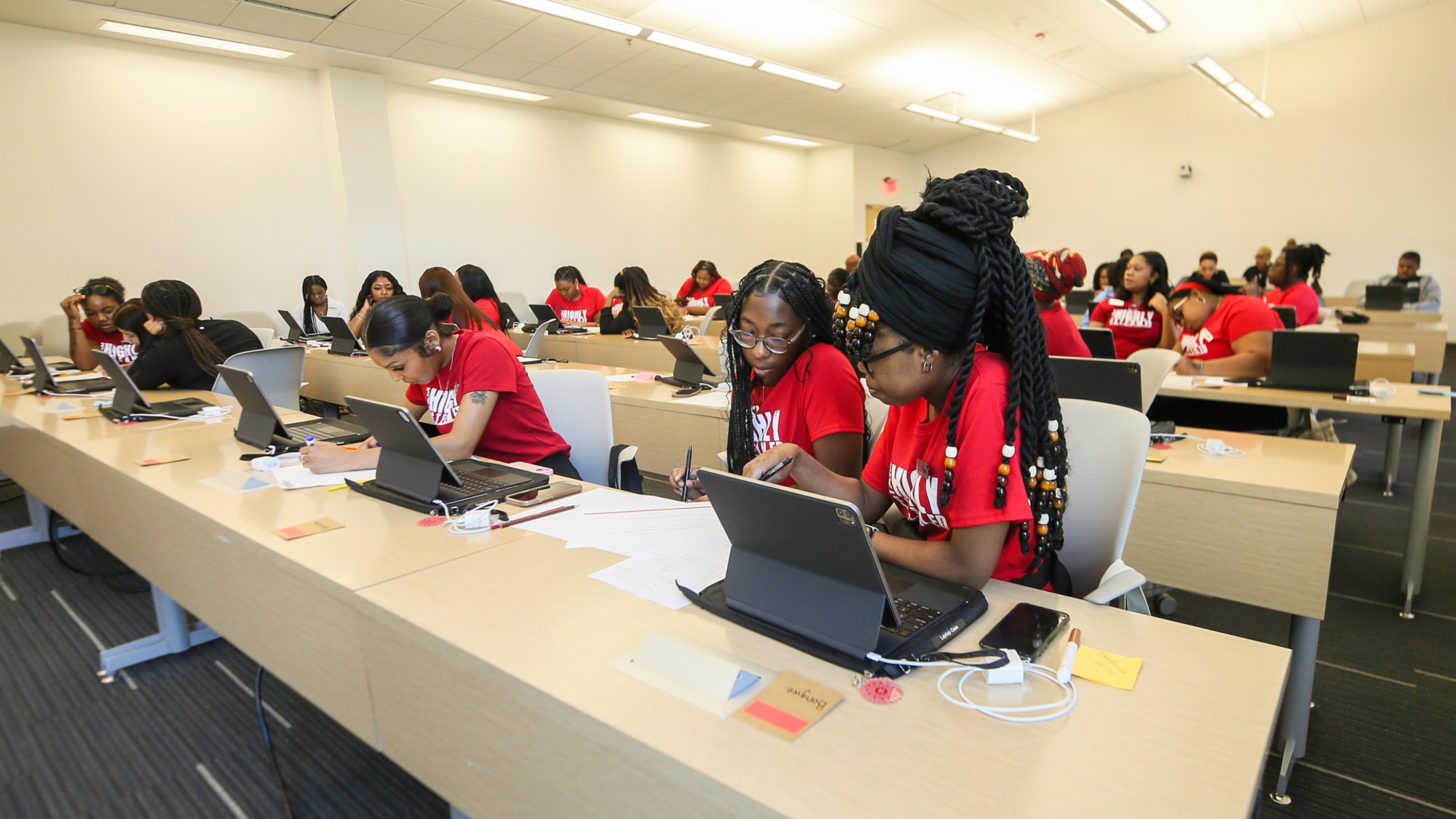Why Russian opposition to Putin's war is crucial — and how U.S. sanctions could hurt it
The West is cheering Russia's anti-war protesters. But is our policy hurting their cause?


A free daily email with the biggest news stories of the day – and the best features from TheWeek.com
You are now subscribed
Your newsletter sign-up was successful
Russian President Vladimir Putin's aggressive, immoral, and illegal invasion of Ukraine that began last month has only continued to escalate. Putin's troops have begun shelling civilian populations in Kharkiv and Kyiv, and the risk of nuclear strike or accident continues to loom.
But where Ukrainians have banded together to fight for their lives and their sovereignty, Russia is not united in this war. Russian protestors have risked everything to stand against the war despite living under an authoritarian government that meets dissent with police and judicial brutality. Their bravery is indisuputable. But very much in question is whether Western policy will help or hurt their cause.
OVD-Info, an independent human rights media project that tracks political persecution in Russia, estimates that more than 8,000 Russians have been detained as a result of anti-war activities in recent days. Many media outlets have been forced to close or to cease their coverage of the conflict, and new legislation passed in the Russian Duma this week would impose 15-year prison sentences on any journalist or protestor who contradicts the government's official narrative about the invasion.
The Week
Escape your echo chamber. Get the facts behind the news, plus analysis from multiple perspectives.

Sign up for The Week's Free Newsletters
From our morning news briefing to a weekly Good News Newsletter, get the best of The Week delivered directly to your inbox.
From our morning news briefing to a weekly Good News Newsletter, get the best of The Week delivered directly to your inbox.
These crackdowns don't show the strength of the Russian state, but rather its fear of the Russian people. Governments engage in repression of this nature precisely because ordinary people possess the capability to force changes in policy and government through collective action.
Those of us who marched against the U.S. wars in Iraq and Afghanistan should see the Russian anti-war movement as allies in the fight against war and aggression. Their boldness is inspiring, and it will be their movement, along with Ukrainian resistors, who will be responsible if there is to be a just and lasting peace.
That's true in a moral sense but also because there is very little Ukraine's Western sympathizers can realistically do to help. It's unlikely that any amount of Western military and economic aid to Ukraine will be sufficient to secure an absolute military victory, and the Biden administration is absolutely correct to rule out direct military interventions such as a "no-fly zone" (an innocent-sounding name for a policy that would require NATO to bomb Russian air defenses and bases, potentially triggering an all-out continental war with a nuclear-armed power). If Putin comes to the negotiating table, it won't be through force alone, but because the costs of continuing a long war against the Ukrainian people have become too high at home and within Ukraine itself.
We know from U.S. wars in Vietnam, Iraq, and Afghanistan that withdrawals often come about due to a combination of stiff resistance from the occupied population and a strong anti-war movement that succeeds in keeping a costly war at the forefront of domestic debate. Americans may be less familiar with the catastrophic Soviet intervention in Afghanistan from 1979 to 1989, a blunder so bad it contributed significantly to the Soviet Union's collapse. That invasion involved over half a million Soviet troops, many conscripted. Some of its survivors surely must empathize with the young men forced into the conflict today — told by propagandists they'd be greeted as liberators only to discover they're hated as an invading army.
A free daily email with the biggest news stories of the day – and the best features from TheWeek.com
Family members of conscript soldiers, too, are a key demographic for resisting the war from within Russia, much like the grieving American mothers whose children were sent off to die in Iraq and Afghanistan. While we condemn Russian political leadership, the generals carrying out this brutality, and soldiers who perpetrate atrocities, it is important for us not to dehumanize Russian conscripts and their families or celebrate their deaths. Nor should we turn a blind eye to instances of discrimination against Russian culture in the West, such as vandalism against Russian-themed restaurants, which will lend credibility to Putin's claims that Western solidarity with Ukrainians is motivated by hatred of Russians, especially when those claims are filtered through propagandistic media.
Indeed, this war is a tragedy for ordinary people on all sides — though certainly a greater one for Ukrainians as a whole — and we should remember that, absent the unlikely event of an outright Ukrainian military victory, the options remaining on the table are basically three: 1) the effective end of Ukrainian independence, 2) a military intervention by NATO that could trigger a nuclear exchange, or 3) a diplomatic solution fostered by a combination of Ukrainian resistance and Russian domestic opposition to the war.
In this context, other governments, and particularly that of the United States, have a responsibility to consider the outcomes of retaliatory economic measures. Russian history professor Gregory Afinogenov of Georgetown University argues at Dissent that sanctions against Putin himself will do little to change his behavior here because Putin is largely motivated by concerns other than material wealth. Sanctions against oligarchs, Afinogenov argues, will only increase their dependence on the Kremlin for economic security (though, I would add, some measures labeled as sanctions, like ending "golden passport" schemes that allow Russian oligarchs to buy Western citizenship, are justified for other reasons). Afinogenov reserves his strongest criticism, however, for broad sanctions that primarily hurt the Russian working class:
[C]utting Russia off from SWIFT and freezing central bank assets are the worst [sanctions], because they lead to hyperinflation and shortages of key imports that millions of vulnerable Russians depend on. Putin has already anticipated the likely effects of all three types of sanctions and therefore will not be deterred by them; neither have sanctions ever worked to catalyze effective political opposition to the regime (or to other regimes targeted by Western sanctions). [Dissent]
This is correct. There is little evidence the U.S. sanctions which target ordinary people in Russia (and many, many other nations) do much other than giving the regime a scapegoat for economic troubles and a pretext for cracking down on domestic opposition.
Punishing working-class Russians for their government's actions will not help Ukrainians, but it might undermine popular movements that could develop the capacity to force Putin to withdraw, to bring Russian conscripts home from war, and — we must hope — to bring larger change to Moscow, building a more peaceful, democratic, and egalitarian Russia, ruled by its people and not the oligarchs and generals who were empowered after the Soviet collapse.
Leveling severe sanctions so we can "do something" may make us feel less impotent. But cheering brave Russian protesters is useless if our policies actively hurt their push for a just peace.
Saoirse Gowan is a writer and researcher with a focus on public policy from a left perspective. She was born and raised in Ireland by an American mother and Irish father, and moved to Washington, D.C. in 2018. She currently lives in Hyattsville, MD, and spends her free time on art and dancing.
-
 The environmental cost of GLP-1s
The environmental cost of GLP-1sThe explainer Producing the drugs is a dirty process
-
 Greenland’s capital becomes ground zero for the country’s diplomatic straits
Greenland’s capital becomes ground zero for the country’s diplomatic straitsIN THE SPOTLIGHT A flurry of new consular activity in Nuuk shows how important Greenland has become to Europeans’ anxiety about American imperialism
-
 ‘This is something that happens all too often’
‘This is something that happens all too often’Instant Opinion Opinion, comment and editorials of the day
-
 ‘The mark’s significance is psychological, if that’
‘The mark’s significance is psychological, if that’Instant Opinion Opinion, comment and editorials of the day
-
 ‘The West needs people’
‘The West needs people’Instant Opinion Opinion, comment and editorials of the day
-
 ‘The censorious effect is the same, even if deployed covertly’
‘The censorious effect is the same, even if deployed covertly’Instant Opinion Opinion, comment and editorials of the day
-
 Vietnam’s ‘balancing act’ with the US, China and Europe
Vietnam’s ‘balancing act’ with the US, China and EuropeIn the Spotlight Despite decades of ‘steadily improving relations’, Hanoi is still ‘deeply suspicious’ of the US as it tries to ‘diversify’ its options
-
 ‘The sport is still run on a shoestring’
‘The sport is still run on a shoestring’Instant Opinion Opinion, comment and editorials of the day
-
 ‘We know how to make our educational system world-class again’
‘We know how to make our educational system world-class again’Instant Opinion Opinion, comment and editorials of the day
-
 Halligan quits US attorney role amid court pressure
Halligan quits US attorney role amid court pressureSpeed Read Halligan’s position had already been considered vacant by at least one judge
-
 ‘The science is clear’
‘The science is clear’Instant Opinion Opinion, comment and editorials of the day
